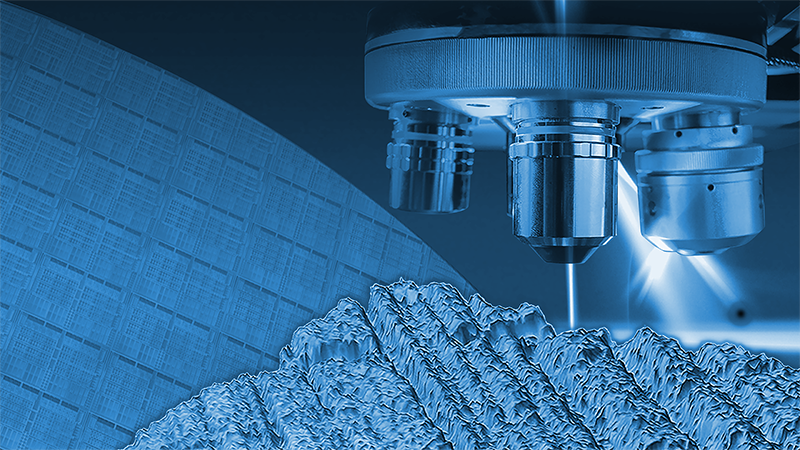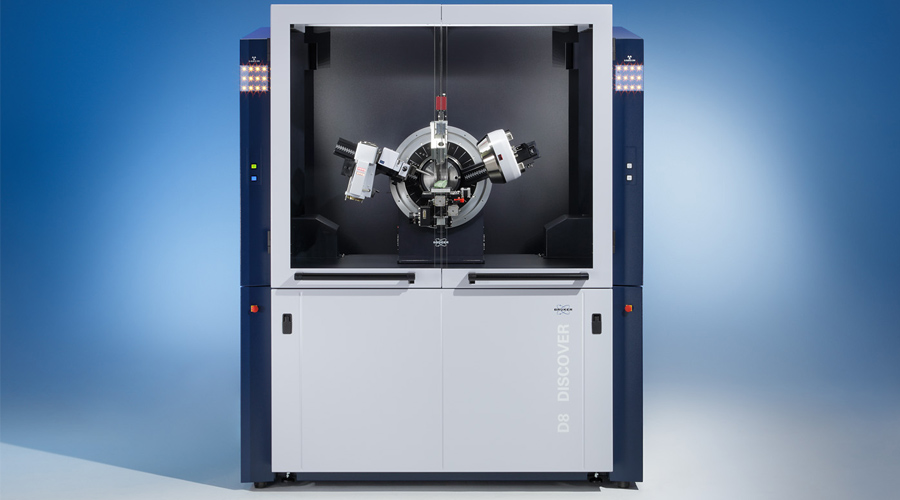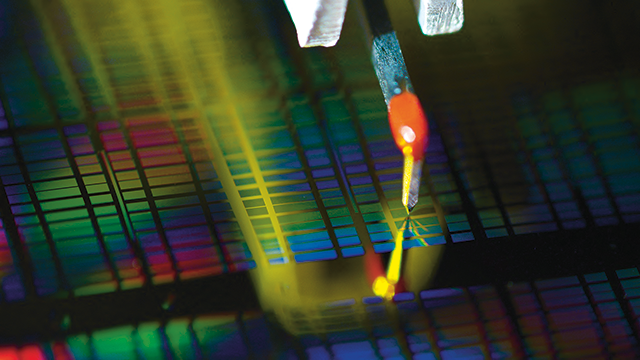

Solar
Quality control to maximize efficiency is critical in the competitive photovoltaic industry. For some time solar texture has been thought to qualitatively affect solar cell efficiency. However, through large-area, 3D measurements and areal feature parameters, quantitative correlation of texture to efficiency has only recently been obtained. We now know that ISO 3D surface parameters linearly correlate with solar cell efficiency.
Bruker’s 3D microscopes provide the subnanometer vertical resolution over large fields of view necessary for this correlation, and can measure rapidly at junctions or other critical areas to more fully characterize the lines and better control the properties of the solar cell. In addition, Bruker’s stylus profilers offer a rapid check of linewidth and height over one or more sections of the sample.
The efficiency, stability and operational lifetime of photovoltaic devices has recently improved. With a better understanding of the chemical composition, microstructure, defects and contamination, the overall opto-electronic performance of solar cells can be further enhanced to address the global energy problem. This can be done using Bruker's state of the art electron microscope analyzers.
Numerous semiconductor devices such as solar cells are nowadays made up of multiple layers. To investigate such layered systems in the final product, Bruker's micro-XRF solution allows to simultaneously measure the layers thickness and their compositions.
Shedding Light on the Workings of Energy Storage Materials
Energy generation and energy storage related applications require some of today’s most complex materials development initiatives to meet efficiency and reliability targets. Many of our electronic devices, from laptops to smartphones, are powered by rechargeable lithium-ion (Li-ion) batteries, and they could soon extend into many other areas as well. This includes transport, through the ongoing development and adoption of electric vehicles. New materials are continuously being developed that transform the ways we capture, transmit, and store energy.
The performance of any battery, whether in terms of its capacity, lifetime or energy density, is ultimately down to the intrinsic properties of the materials that comprise its anode, cathode, electrolyte and SEI. Bruker has developed a comprehensive suite of characterization techniques to enable scientist to understand and optimize the physical and chemical properties, performance and stability of all battery components and the fully assembled battery cells.
Read on to find out how Atomic Force Microscopy, FTIR Spectroscopy, Nanomechanical Testing, X-ray Diffraction, Raman Microscopy, X-ray Microscopy, Magnetic Resonance and X-ray Spectroscopy shed light on the workings of energy storage materials.
Add Automation to your instrument
In the solar industry, our automation solutions offer unique advantages that significantly enhance research and operational outcomes. Automated systems handle repetitive and time-consuming tasks, allowing researchers to dedicate more time to critical thinking and innovation.
This leads to faster data collection and analysis, enabling quicker identification of material properties and ensuring the development of more efficient and sustainable solar technologies.
Additionally, automation ensures reproducibility and accuracy in experiments, which is crucial for validating results and maintaining high standards of quality control. By reducing manual errors and increasing throughput, our automation solutions help solar research institutions maximize their resources and achieve their goals more efficiently.




